|
Have you ever been inside a giant puppet? Have you ever felt curious what it feels like to be a 7 ft pink rabbit, a baby (diaper and all) ? Or maybe you’ve always wonder what kind of people are inside these contraptions? Well, we had all of those questions answered and more at Snuff Skool, a highly energetic workshop run by Snuff Puppets where participants (willing guinea pigs) learn how to manoeuvre a giant puppet. Here are our top tips on surviving and thriving at Snuff Skool. 1. Wear cool and breathable clothing. It is HOT inside the puppets. Do not go to Snuff Skool in a hoodie, unless you want to look like you came out of a washing machine. 2. Give it a good go. It’s not every day that you get to go inside an enormous bunny rabbit or become a pile of mince, so let loose. The great thing about a workshop like this is that, ideally, everybody is a newbie just like you. It feels awkward and daunting at first but once you get the hang of it, you’ll be questioning why you never even considered a career as a mascot! OK, maybe not but it’s still a chance to explore your inner kid. Just do it. 3. Take the practice performances seriously. Some of the puppets take a lot more skill than others. For example, the skeleton suit is essentially just that. Pop it on and voila you’re part of the undead, easy. A puppet like the cow—on the other hand—has levers and pulleys, requires stamina and concentration. Listen to your instructors carefully when trying to tackle this puppet. 4. Eat hydrating foods and drink heaps of water. This one is a no-brainer. It’s a physical activity and you need to have your energy levels up. Don’t be alarmed, it’s not a beep test, you can stop feeling guilty for skipping that gym session. Top food choices: Watermelon, oranges and cucumber. Protein like chicken, tofu, tuna and lentils. 5. Let loose when you’re out for a roaming. This tip is similar to number 3, but roaming is when you go out and perform for the public. We went to the local train station and around to nearby cafes. Depending on your class, you might go out roaming or not. But, when and if you do make sure you listen carefully to instructors, because they’re the experts. Have fun with it and don’t take yourself too seriously, you’re a giant baby, a dog or a seagull after all!
0 Comments
For many years, the East African Women’s Foundation and community members have visited Philip Island. A place that holds fond memories of summer, salty granules of sand that show up in our clothing weeks later and essential camp activities like the giant swing and flying fox. When 2020 rolled around and stopped our lives in its tracks, we feared camp wouldn’t go ahead. Yet, like a rip in the current, 2020 threw yet another curve ball right at us. The COVID-19 situation in Melbourne stabilised and both tentatively and bravely we began organising our trip to the island of small penguins and Hemsworth brothers (pre-Byron Bay move). It was a big task that lay ahead. Not only were we dealing with the changes COVID brought along, we were also taking our biggest group yet- 80 people! We needed to draw up programs, timetables, work schedules for volunteers and coordinate all of this with attendees. It was a true team effort. The planning was exhausting but the motivation was high. We were coming off the back of one of the hardest years in recent times; a global pandemic that had real world consequences. There was also navigating home schooling, hard lockdowns, ZOOM fatigue and no end in sight. If there ever was a time to deliver, it was now. And deliver we did. The two-hour bus ride was exciting for the young children. It was a socially distanced journey, where some seats were cordoned off to comply with the new COVID-normal environment. As we drove past the rolling dry plains before San Remo, the trip was becoming all too real. Squeals of excitement and utterances of “I can see the ocean!” were aplenty. On arrival, our volunteer youth leaders were given their lanyards and settled into their appointed roles. The youth leaders ranged from 13 years old to 25 years old. Some of the responsibilities included helping with food service during mealtimes and supervising activities with children under 12—although they will tell you they wore many hats. The first day was spent swimming and relaxing by the pool. Children were able to lap up the sunshine and carry on yelling nonsensical sentences, like “cannonball boom, yeahh” before jumping in the chlorinated water. That evening we had a meeting to discuss the schedule (again, we did this a lot) for the next few days. For dinner we enjoyed a delightful butter chicken and rice, it was superb. Day two, our first full day was jam packed with activities. The over 12’s did the giant flying fox, while the under 12’s did a low ropes course. After the initial mayhem about where everything was located, we got there in the end. The activities were set against the backdrop of a beautiful lake and a vibrant green and perfectly manicured lawn. The sun reflected on the water and lit up everything. It was a true escape from the suburban dwellings we had come from. The following day was similar in routine; fun activity, eat, swim, and repeat. Our greatest adventure was when the under 12’s and their parents walked to nearby Koala Conservation Reserve. There we walked through the bushland to spot koalas in their natural habitat. It was ‘I spy’ but the stakes were much higher as koalas amongst the large gum trees and foliage proved elusive. We managed to spot a few. As camp was coming to a sad end, many people were not ready to go. Camp had provided a much-needed reprieve from the stress of 2020. EAWF had prepared a mental health session at the camp, where community members were invited to reflect on the hardships of the year. The session covered the importance of community, faith and hope. The comradery developed through things like strapping a child in harness to go on the flying fox, a mother enjoying a dip in the pool, an intense card game or a round of ping-pong brought the camp goers closer together. It was the first time many had seen each other in months and there were new faces. Newly arrived refugee and EAWF volunteer 23-year-old Sahra had never been to camp. Philip Island was a different experience for her entirely. “The only camp I’d ever been to was a refugee camp. So, Philip Island was a funny experience for me as it was my first ‘real’ Australian camp. I had so much fun. I cannot wait to go to another one, Insh’Allah”. Camp was a brilliant way to begin 2021. It was a much-needed rejuvenation. Although, one camp does not entirely erase the hardships many of us faced last year, it does add an optimistic spring to our step. To the new year and beyond!
We’d like to thank our generous sponsors, MCCA for contributing to this camp, the Victorian Department of Premier and Cabinet and all our lovely volunteers who work tirelessly to make events like this happen. 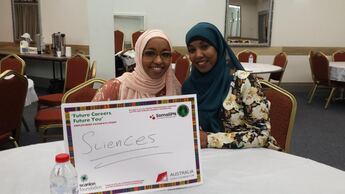 Muna (right) at the Employment Pathways event held by EAWF and SomaliPN (2018) Muna (right) at the Employment Pathways event held by EAWF and SomaliPN (2018) Spotlight on (drum roll please)…. Muna M Hassan! I had a chat with this awesome individual about all things career and, in this climate, COVID-19 had to get a mention (of course). Muna was a part of a joint EAWF and SomaliPN- Australia, Employment Pathways Event supported by the Scanlon Foundation and the Australia Light Foundation in 2018, more on that coming soon. Below is our conversation. Thank you, Muna for being such a willing interviewee, especially during this pandemic where as a health worker and researcher you are on the front line and like so many others in your field – permanently exhausted. Muna is President of SomaliPN- Australia, a Somali founded knowledge exchange career and networking platform that has amassed 30,000 + members, globally. The group's purpose is to share individual experiences of different career paths amongst its group members. It is a microcosm full of advice, stories and olive branches extended, namely through the posting of job offers. The ethos behind the group is simple: ‘Don’t forget to give before you ask’, a catch cry that embodies the altruistic nature of SomaliPN. Muna understands the all encompassing nature of being a ‘volunteer’. Yes, that old chestnut—I’m speaking directly to other volunteers in any realm--it is equal parts rewarding and time consuming. However we are all drawn to it for the same purpose: helping others! EAWF: What is your current occupation? Muna: Senior Clinical Research Associate II/Lead CRA. How long did it take for you to get to where you are today? Muna: I have worked in Clinical Trials, Drug Research and Development for the past 12 years now. I started in pre-clinical work and then, during my final university days, moved into a study coordinator role for about 2.5 yrs. During this time, I was also involved in a car accident. I took a year off to recover and got back to work, Alhamdullilah (thank God). I then continued to move up in my career, to where I am today. What is one piece of advice that you would tell your younger self before you began your current career path? Muna: I will not give just one piece but a few. I would tell my younger self to give myself more, “pep talks” that state: 1. Hold yourself accountable for your actions; do not let others do it for you. Do not allow the fear of failure to hold you back! 2. If you think that your contribution, talents and commitments deserve recognition, ask for it; clearly and honestly. Do not wait to be recognised for how good you are. 3. Finally, realise that you are not alone in your experience as a young woman dealing with education and the workforce. Try to connect with someone in a similar situation so that you can share your defeats as well as achievements. What makes you smile at work? Muna: The last couple of years my work has been focused on Oncology (Cancer) trials, so working with a strong team of professionals to determine whether potential new treatments are safe, effective and can improve quality of life for cancer patients, is the reason I smile. I feel good waking up in the morning, knowing I can contribute to that cause. How has COVID-19 pandemic impacted/ affected your occupation? Muna: I am focused on Oncology & Haematology trials, so COVID-19 has significantly affected patient enrolment. It has also delayed and cancelled patient visits. Enrolling new patients to the study is a much lower priority than tackling the pandemic at the moment.. The greatest operational challenge has been to reevaluate milestones including delays to activation of sites, enrolment, data collection and cleaning. As a CRA, one of my main tasks is to visit trial sites regularly and monitor the conduct of clinical trials and compliance with established timelines. Because of travel restrictions and lack of on-site monitoring, we have had to adjust. Now we monitor remotely and source document verification, to ensure that participating patients can continue to benefit and maintain the quality of the work/ data. Another added challenge has been the change in my routine. Routine is a big part of my role and I have had to learn to adjust. It has been a constant process of adapting and learning through trial and error. Pharma/CRO and sites/hospitals are embracing change and modifying existing trials to the new environment, ultimately keeping staff and patients safe. The industry will be different after the crisis passes, and this is something we are all preparing for. The sooner we can adapt, accelerate change, and plan for tomorrow’s challenges, the stronger our positions in drug research and development will be. COVID-19 crisis has made people increasingly interested and invested in what the pharmaceutical industry does and how it does it. We will need to ask ourselves if we have been sufficiently resourceful in responding to COVID-19. What new technologies have we embraced? How have we changed the ways we do business, develop drugs, and treat patients? The pandemic has taught us that we must become more efficient and pragmatic from the time of drug discovery to patient access and treatment. EAWF, like most non-profit organisations, had big plans in 2020! Plans that excited the volunteers and community members alike. One of those plans was to expand on activities for the elderly Somali women in the community. Initiatives planned for 2020 included training sessions, outreach programs and advocacy work.
We have run programs intermittently over the past decade. In late 2018, some of our elderly Somali women and young Somali girls joined together for a camping experience, as part of a story telling project focused on first generation Somali-Australian girls connecting with the elder Somali women, through stories. The stories shared, were fascinating and largely unheard of, because, in Somali culture, stories are shared verbally and seldom written down. In February 2020, a fortnightly workshop commenced under the supervision of EAWF longstanding member and volunteer, Nadifo Mohamed. Inspired by the camp of 2018, Nadifo planned to capture some of these stories of a vastly different Somali generation and bygone era. The first meet ups took place at Carlton Hall and consisted of ten to fifteen elderly Somali women from Carlton and surrounding areas. During their time with EAWF volunteers, the women were encouraged to share their unique stories for the sole purpose of fostering a welcoming space that validated their rich knowledge. Religious Islamic studies were included to provide spiritual relief for the women. And, true to Somali culture, it was enjoyed with a lots and lots of… chai tea! One of our core aims at EAWF is to encourage social inclusion for the most vulnerable members in our community—our elderly. We are passionate about countering isolation and building support networks within the East African communities in Melbourne. So, naturally when the COVID-19 pandemic erupted and put a halt to this and most things, we had to come up with a solution to counteract the looming impact of isolation on the elderly Somali women. Armed with pots of steaming biryani rice, stewed meat and curried vegetables, Nadifo and Chair of EAWF, Fartun Farah, set upon delivering food to the women on the day of the fortnightly meeting. “It was hard to improvise because of the ‘no physical contact’. Most of these women live in high rise buildings”, says Nadifo, but luckily with the help of middle men, it was a smooth transition. Each woman was also provided with the Australian Government fact sheet on COVID-19, translated in Somali. It was important to highlight to the women that there were legal implications surrounding the new paradigm. And so with stern warnings of social distancing and hand washing conveyed through fly screen doors and middle men, the word – and the food – safely reached the women. Although the restrictions are temporary, we are deeply saddened that our fortnightly workshops cannot continue. Not just because we are idealistic dreamers at a non-profit organisation but because we saw the joy it sparked in the women. Currently, we are doing weekly ‘check in’ phone calls, just to say hello and have a chat. More than anything we want them to know that, in uncertain times, there are still some certainties to find solace in, and one of those is EAWF’s support for the women. And, yes, we reassure them many times that the group will be back! Until then, we encourage the elderly Somali women to remain calm, take on the challenge of technology (perhaps, this is wishful thinking) and like the rest of the world; just keep scrolling, because it may still be a while yet before we are face-to-face. |
CategoriesArchives |
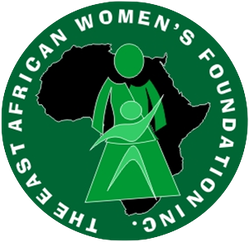

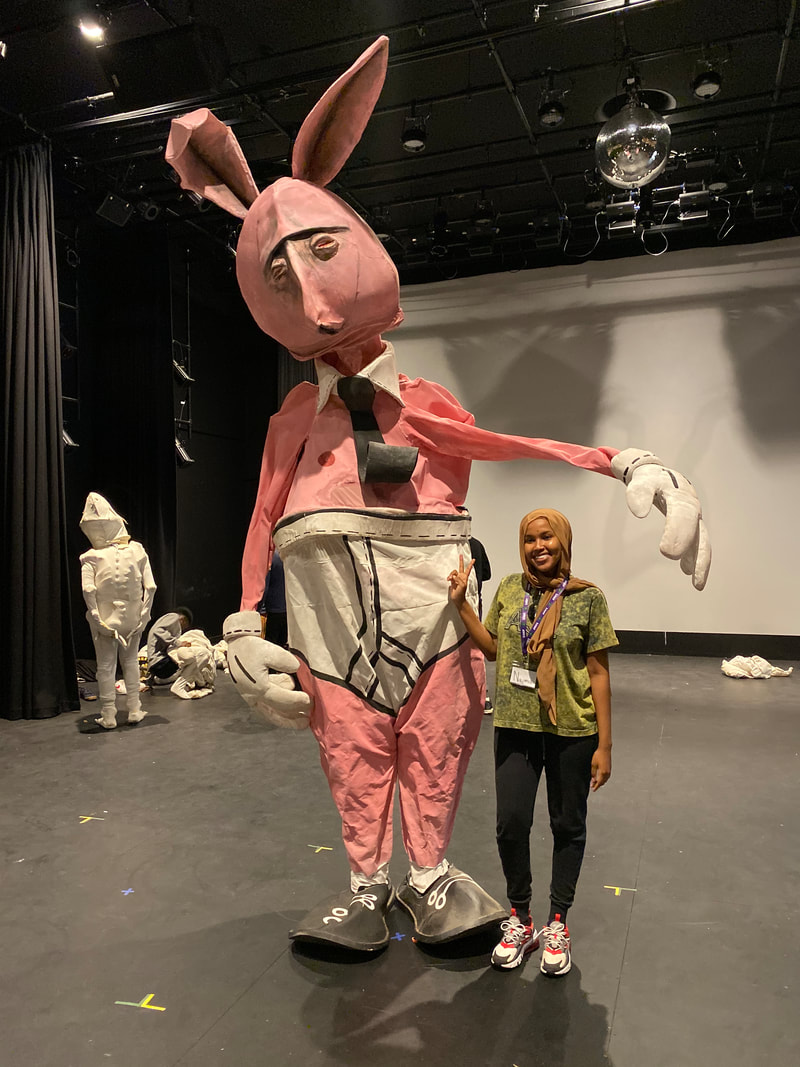
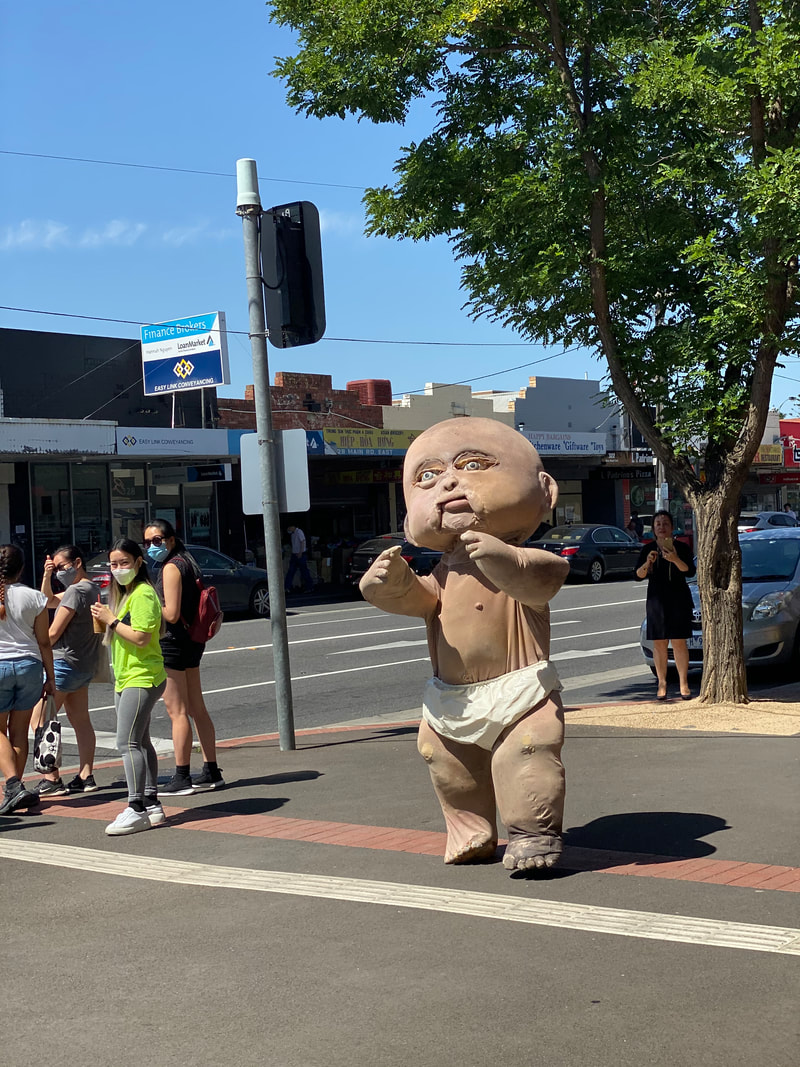
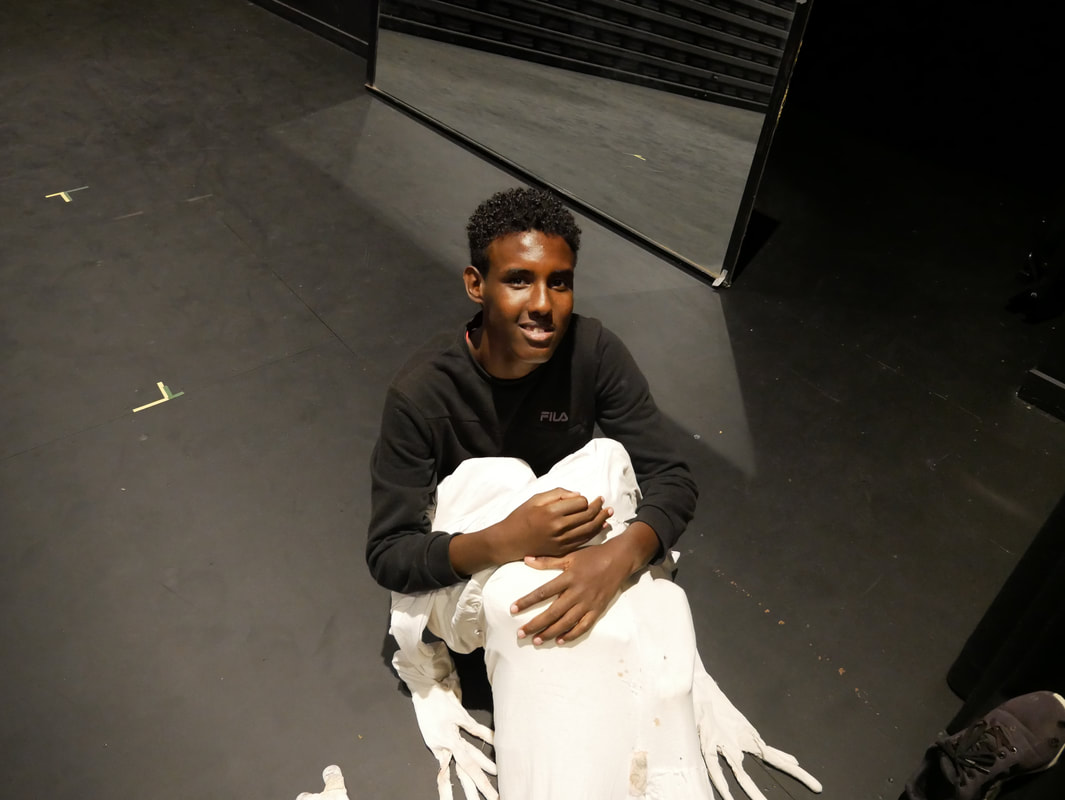
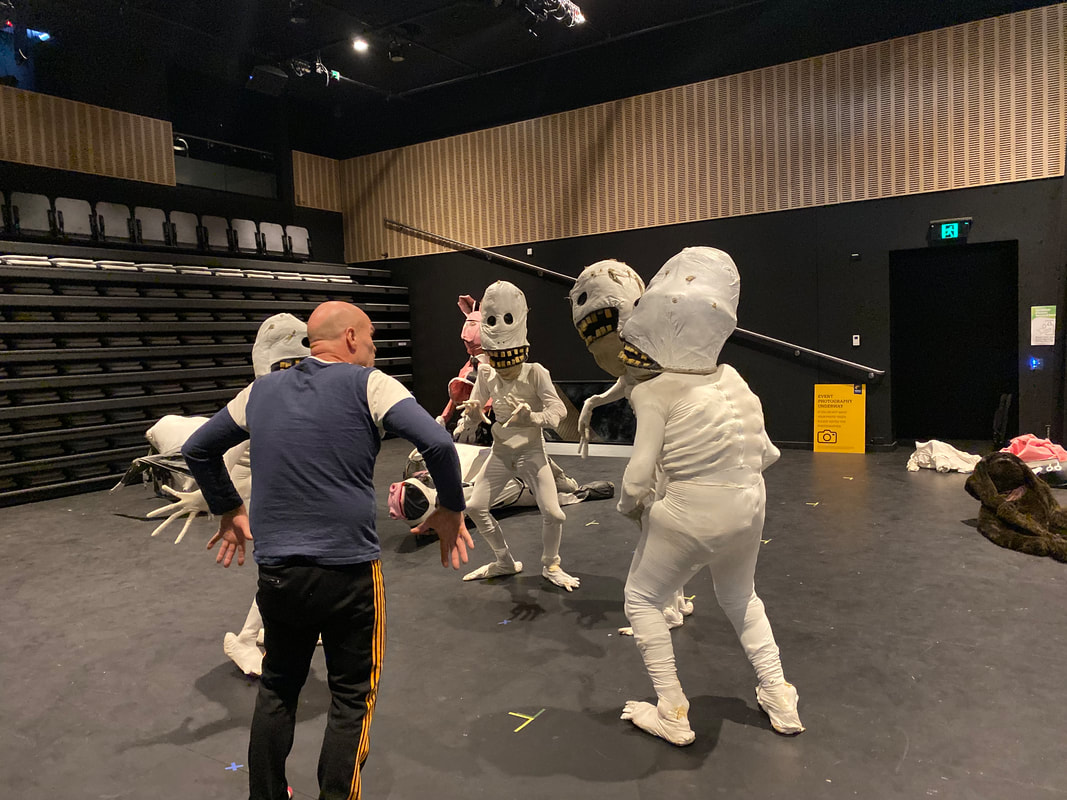
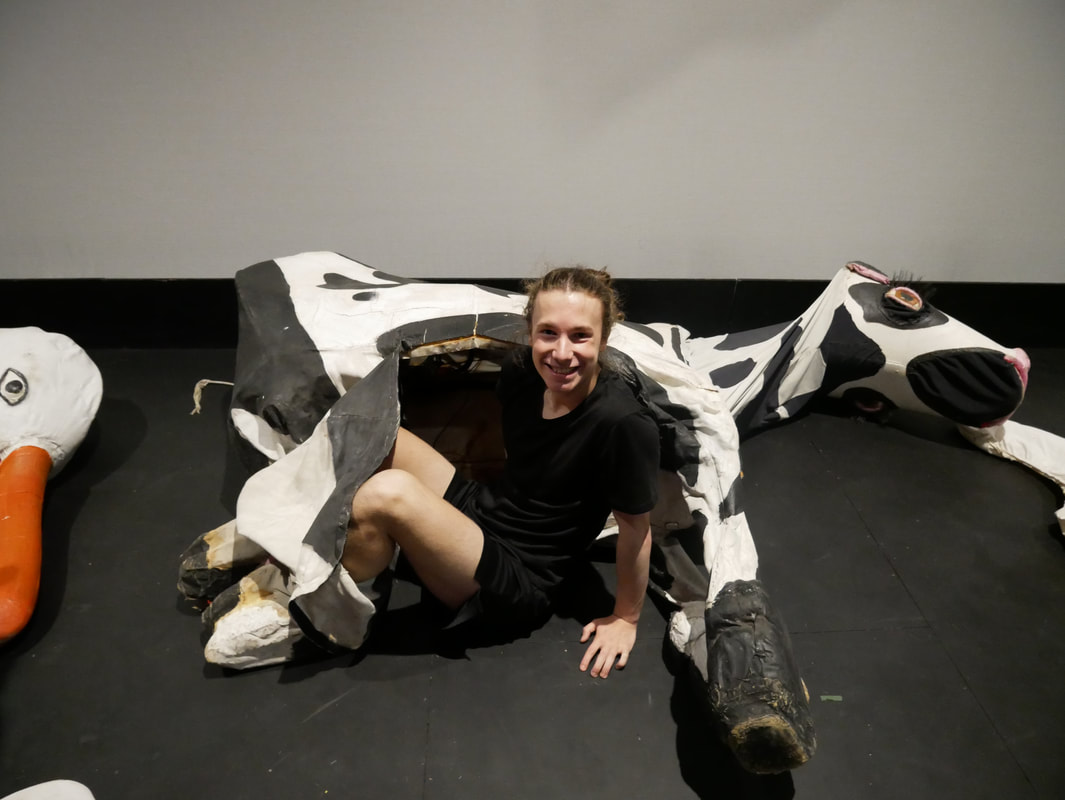
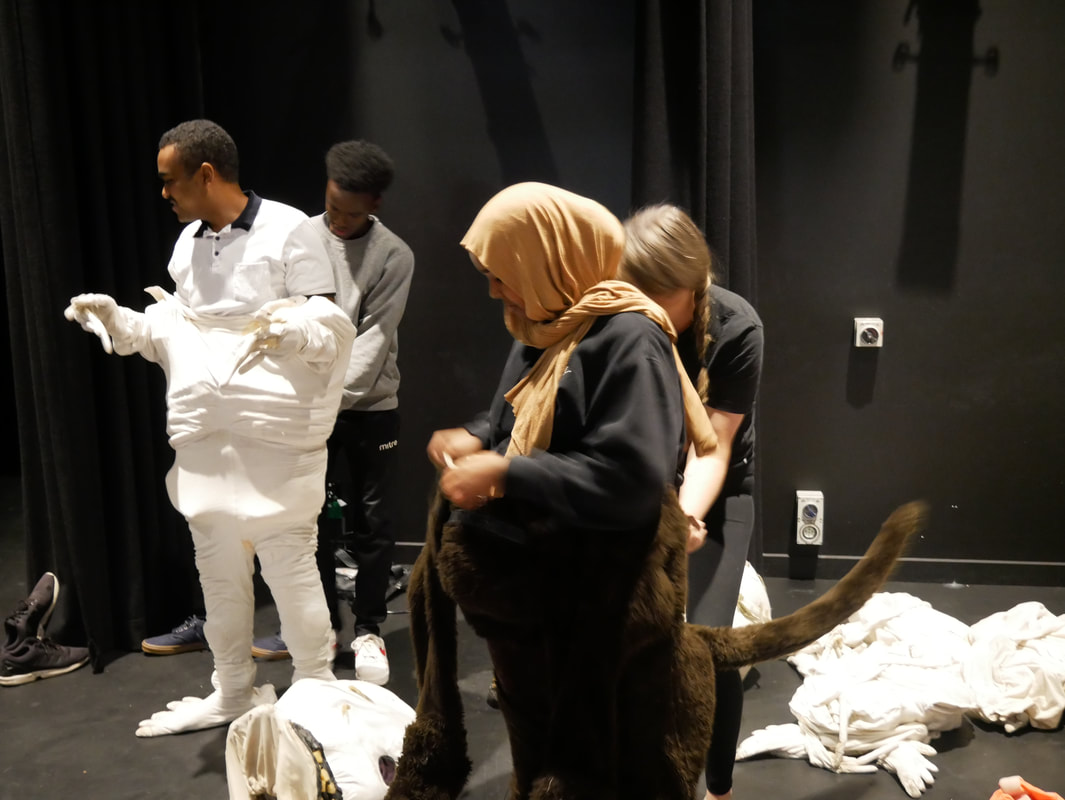
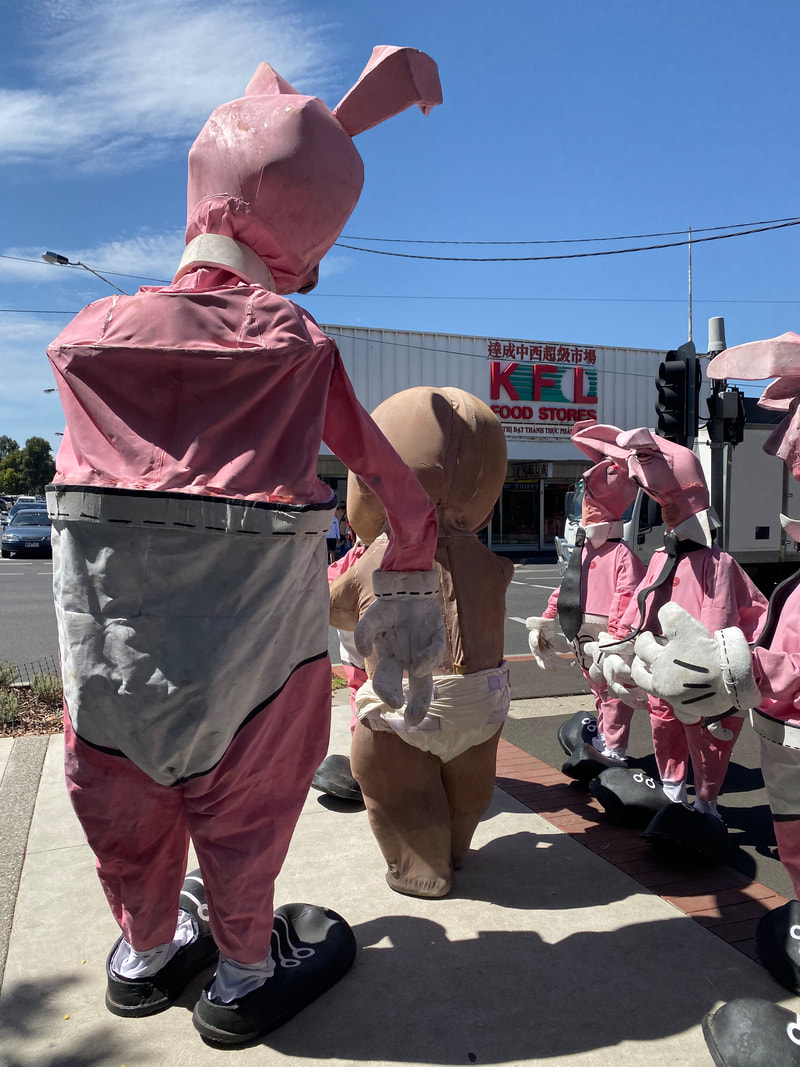
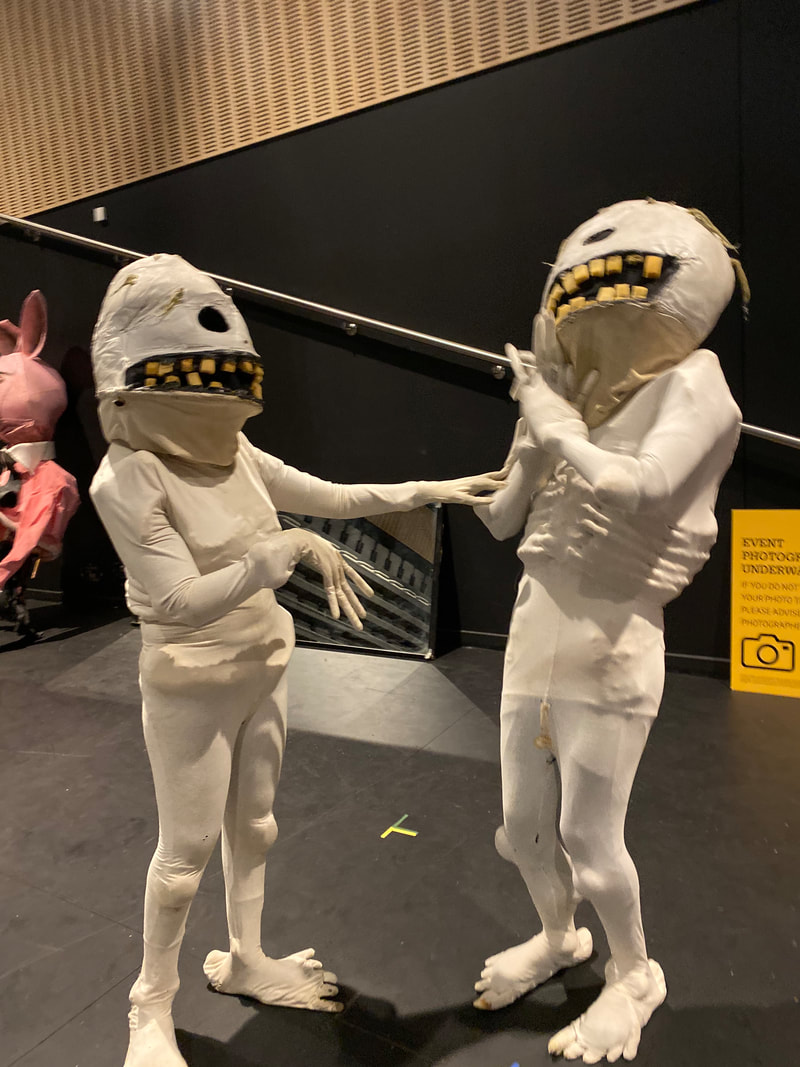
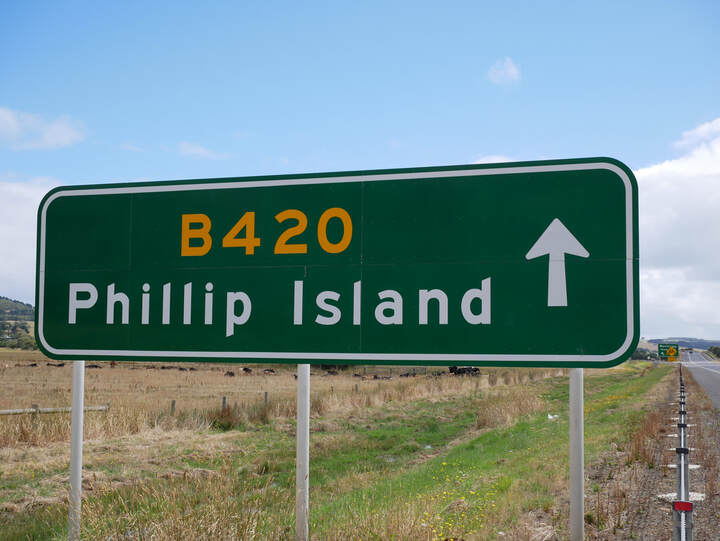
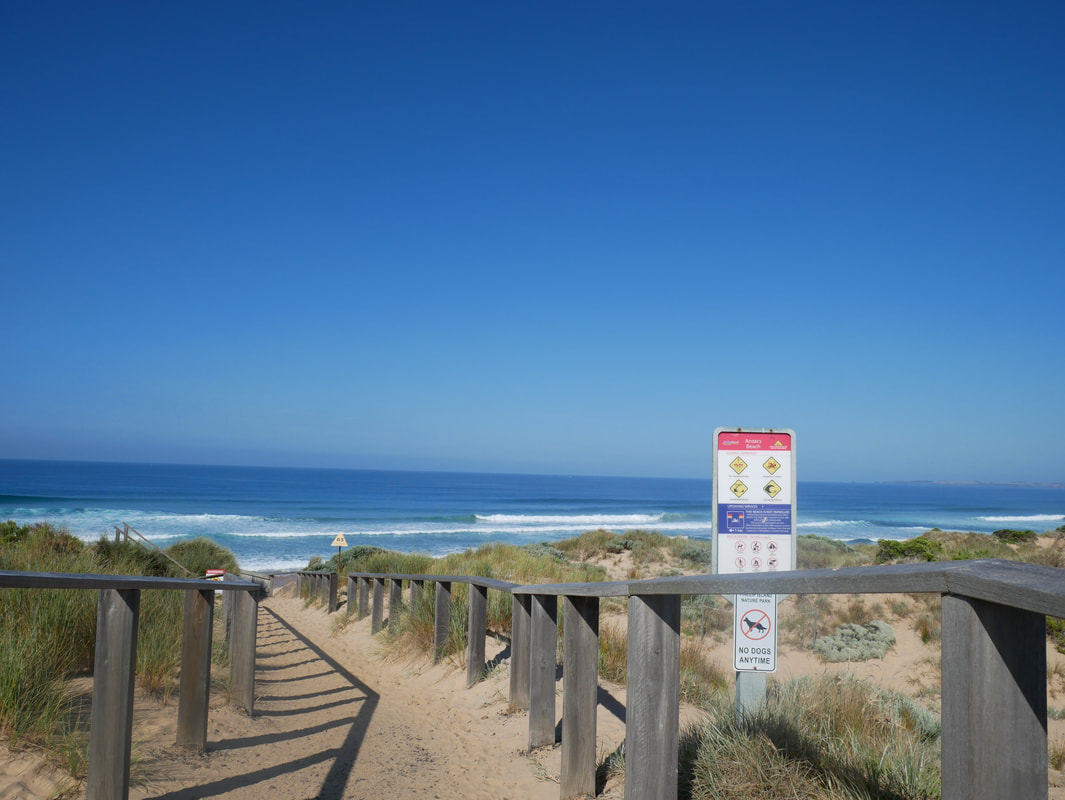
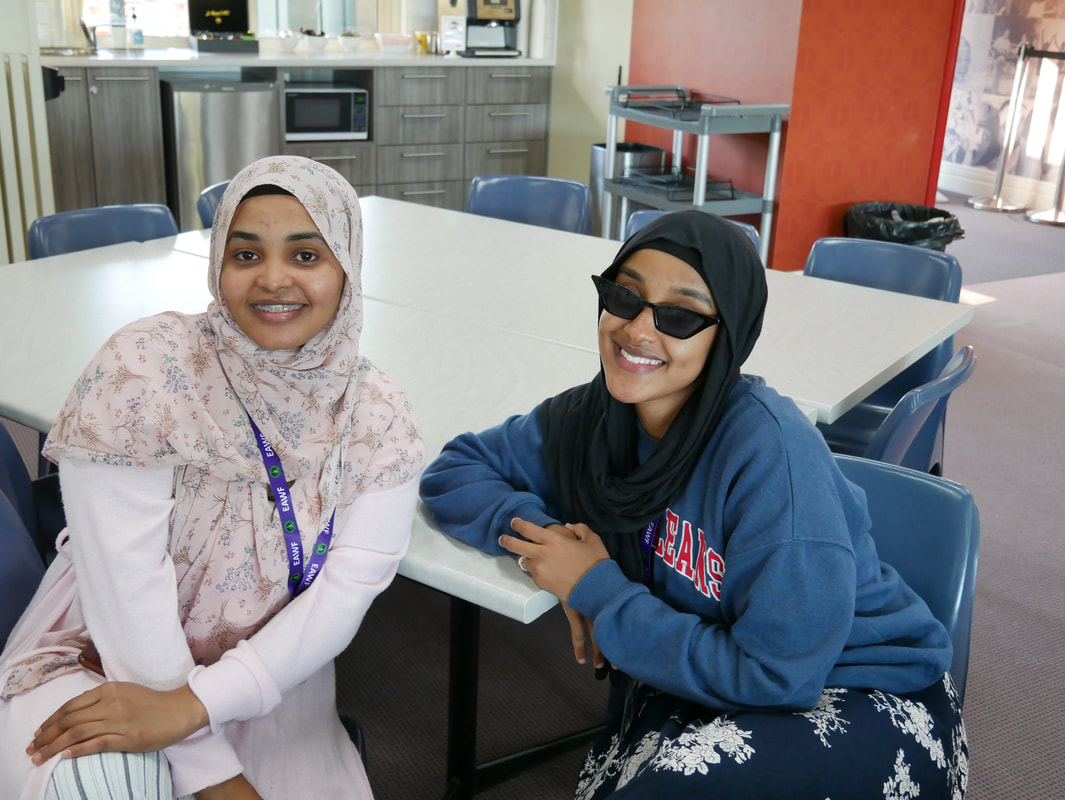
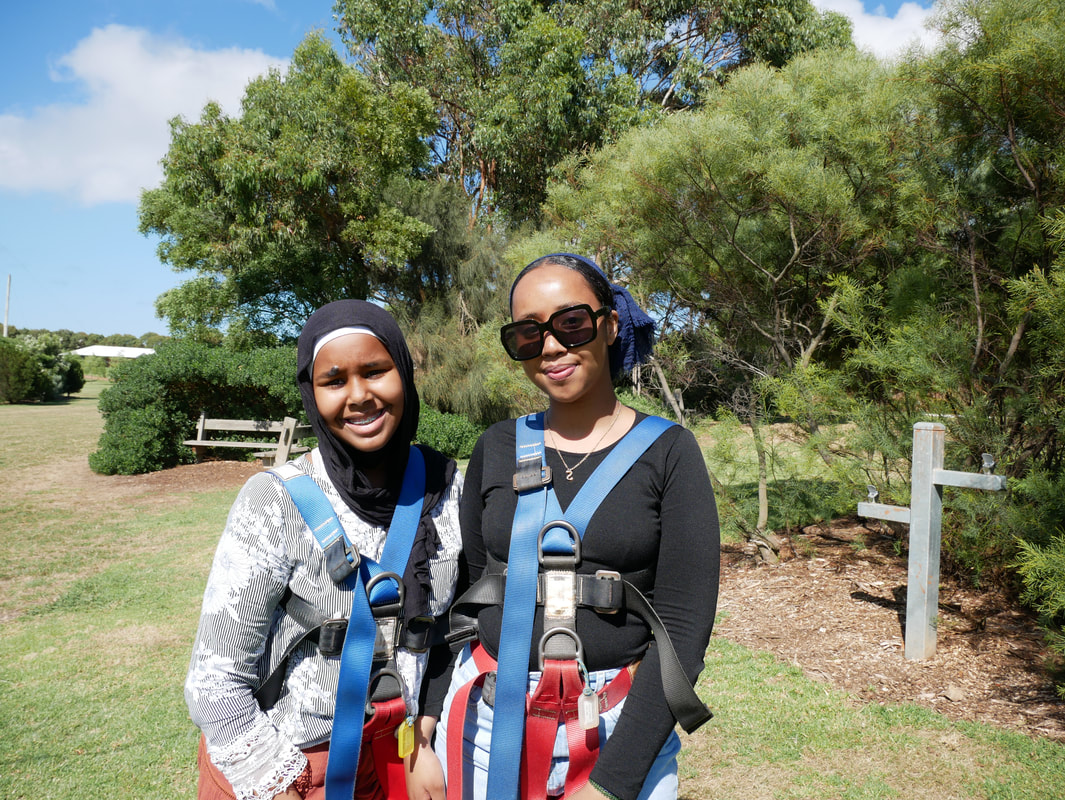
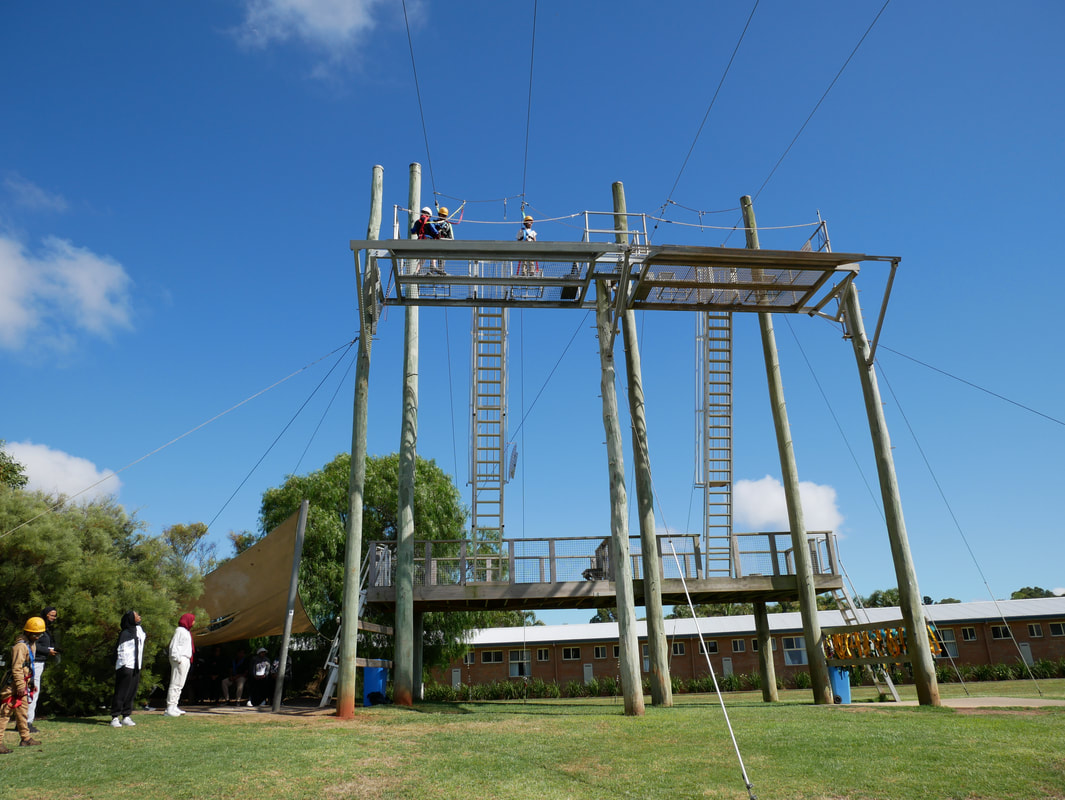
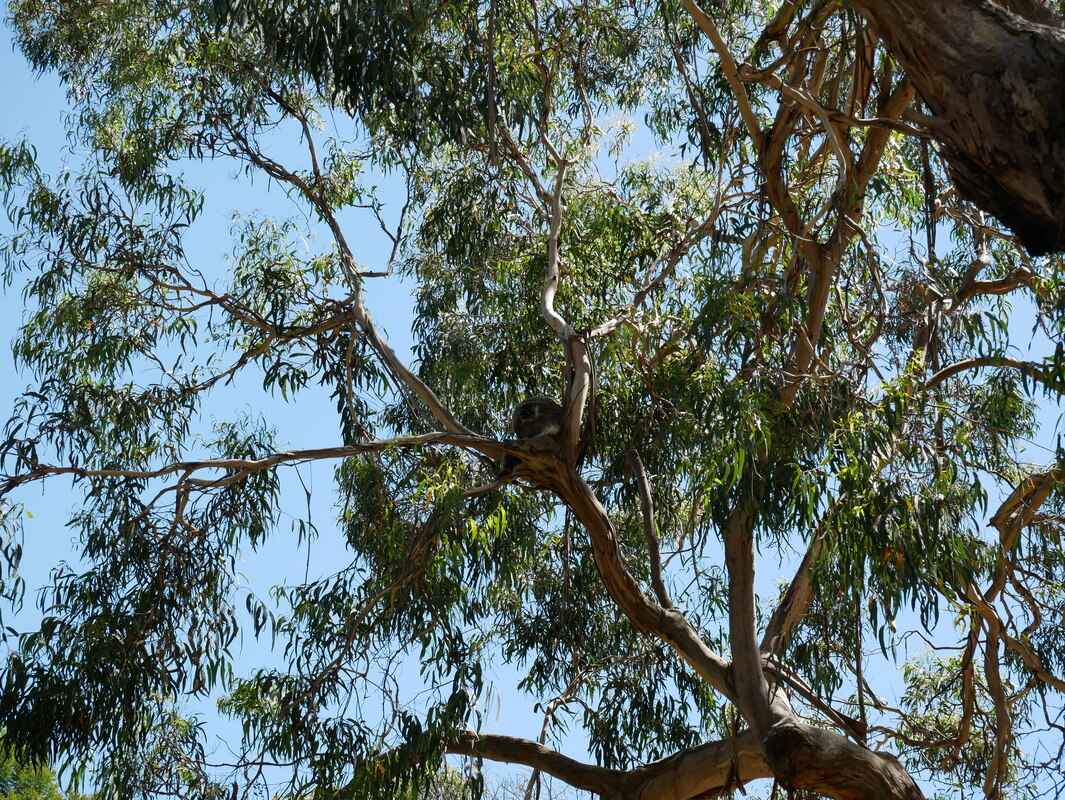
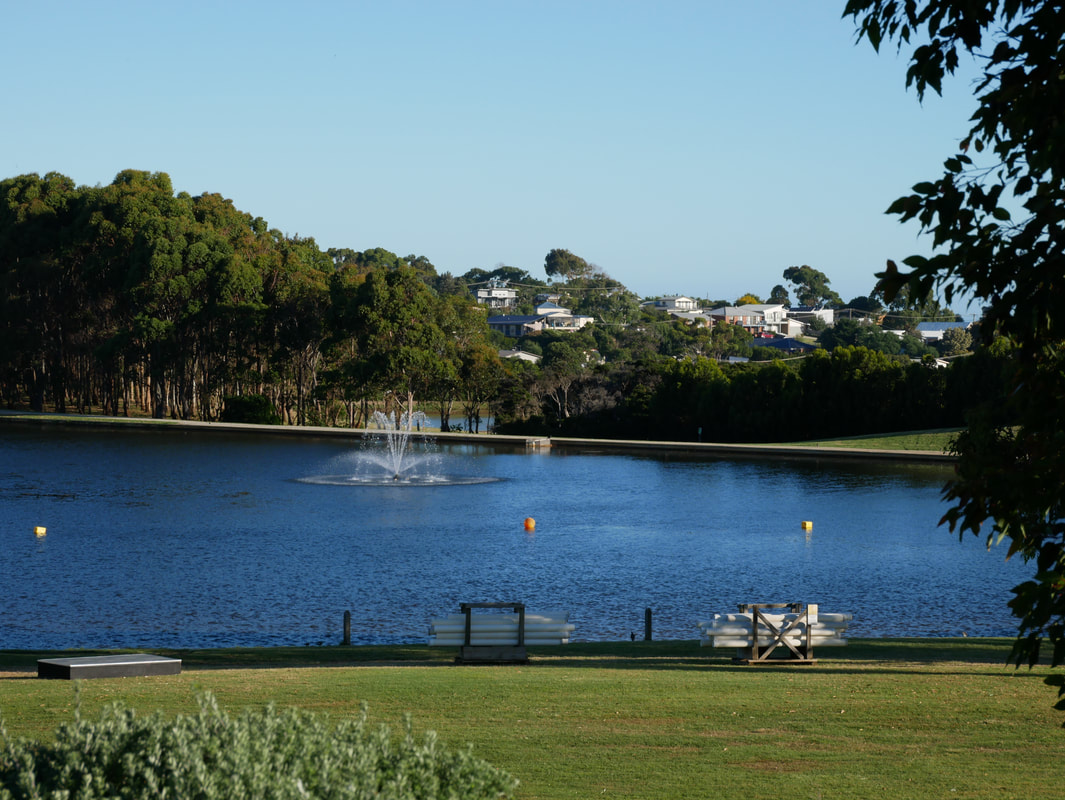
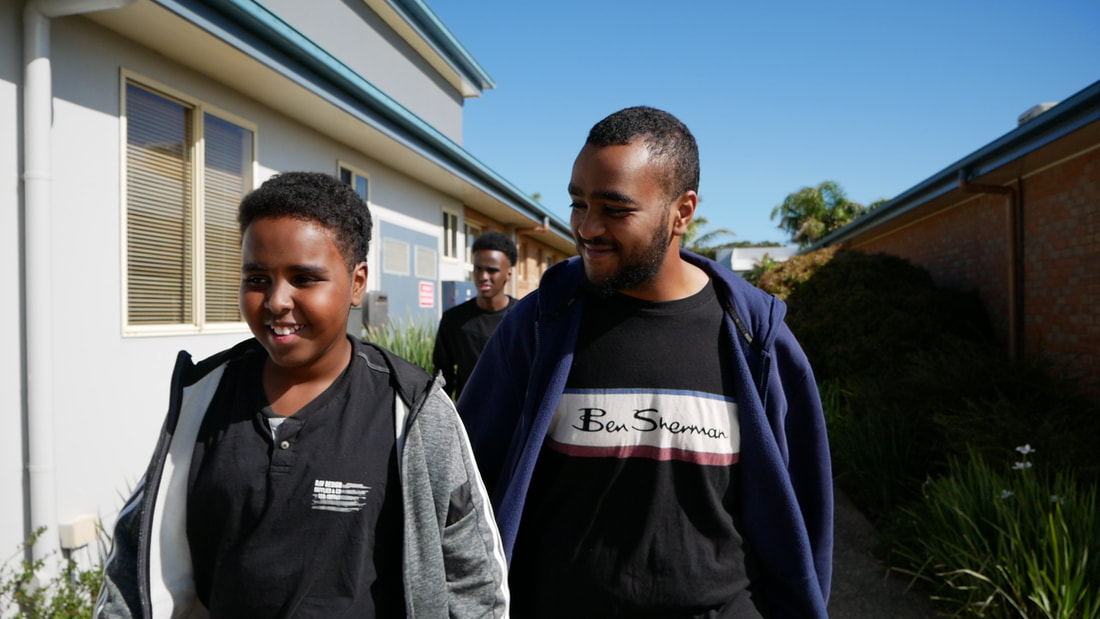
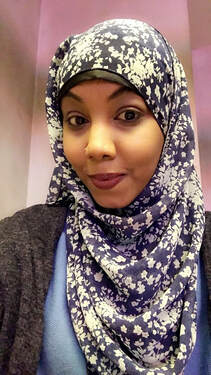
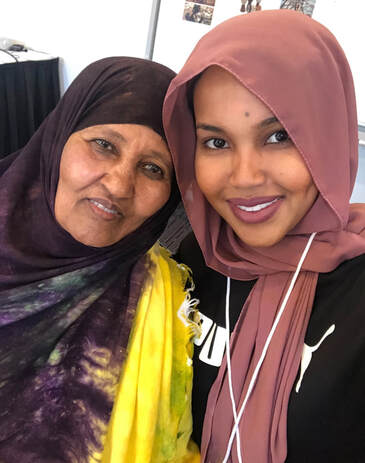
 RSS Feed
RSS Feed